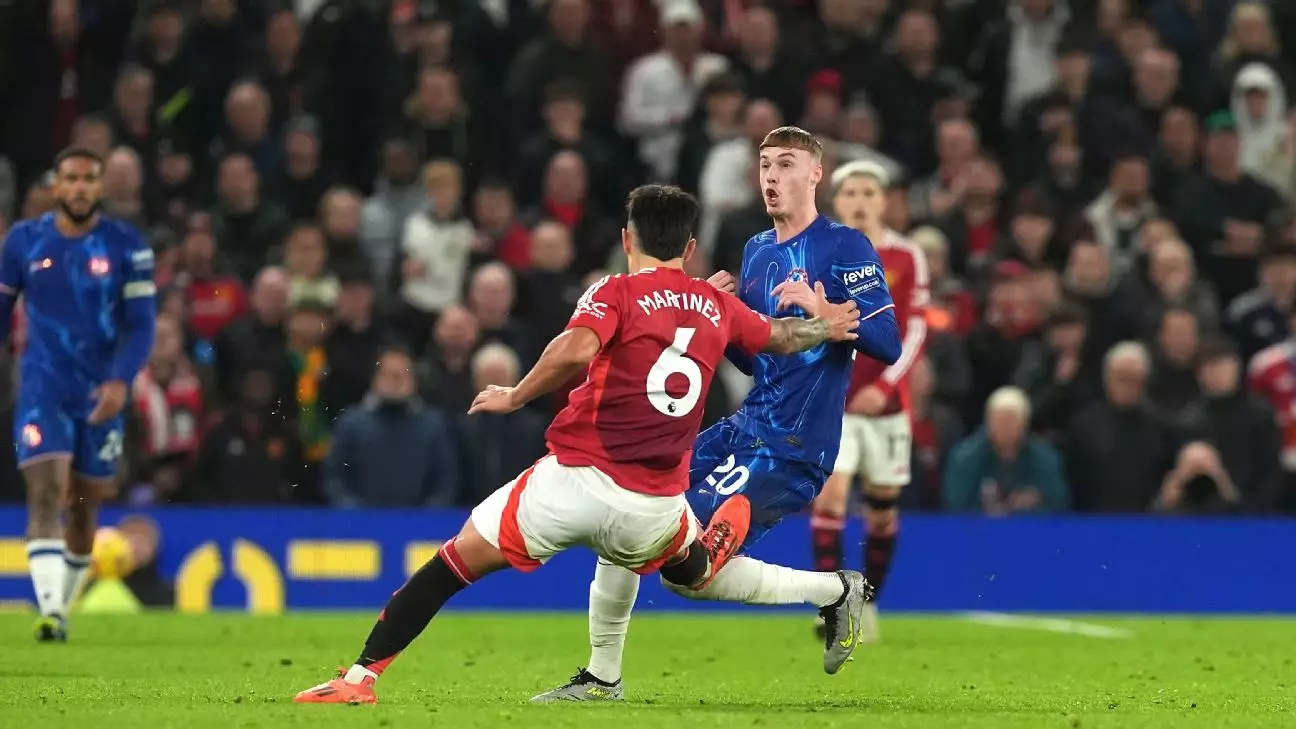The Premier League clash between Chelsea and Manchester United at Old Trafford ended in a 1-1 draw, but it was amidst controversial officiating that the match left a bitter taste for some. Central to the discourse was the challenge made by United’s Lisandro Martínez on Chelsea’s Cole Palmer, which sparked fierce debate among coaches, pundits, and fans alike. Enzo Maresca, Chelsea’s head coach, voiced strong opinions regarding the officiating, suggesting that Martinez’s challenge warranted a red card rather than the mere yellow he received.
On the surface, the challenge seems straightforward: a defender making a high tackle on an attacking player should raise concerns around player safety. Notably, the incident unfolded three minutes into stoppage time when Martínez caught Palmer high on the knee, leading referee Robert Jones to show a yellow card after consulting with VAR. However, the definition of “reckless challenge” versus “serious foul play” swiftly turned this incident into a contentious topic. The distinction between yellow and red cards is often a matter of interpretation, and in this case, it did not swing in Chelsea’s favor.
Maresca’s assertion that the decision to award a yellow card was a misconception underlined the palpable frustration emanating from the Chelsea camp. He stated, “When there is no intention to go for ball and you only go for the player, it’s a red,” emphasizing that the intent should weigh heavily in the referee’s decision-making process. By contrast, Ruud van Nistelrooy, the interim coach for United, took a more reserved stance, admitting ignorance to the finer details of the tackle due to lack of replay access at the time. His remarks pointed to a common media issue during high-stakes matches where critical analysis may be hindered by timed broadcast decisions.
Former Manchester United captain Roy Keane, now known for forthright opinions as a pundit, echoed similar sentiments to Maresca’s. His comment, “Martinez is a lucky boy. It’s a nasty tackle,” further galvanized the narrative that the officiating was less than adequate. The divergence in opinions not only accentuates the difficulty in making split-second decisions on the pitch but also reflects a broader discourse surrounding the consistency of refereeing standards in the league. The aftermath of such decisions often leaves teams feeling aggrieved, and fans questioning the very integrity of the refereeing system.
As the Premier League resumes, the Chelsea vs. Manchester United match serves as a reminder of the complexities involved in officiating top-tier football. Decisions made on the pitch can reverberate beyond the immediate context, influencing player morale and team dynamics. Greater clarity and training regarding fouls—and how these are officiated—should be a priority for league officials. In a sport where the margin of victory is often razor-thin, ensuring that officiating is consistent and transparent might be as crucial as tactics and player performance. Thus, as fans, players, and coaches move forward, fostering a dialogue about refereeing standards may ensure that everyone enjoys fair play in the beautiful game.

